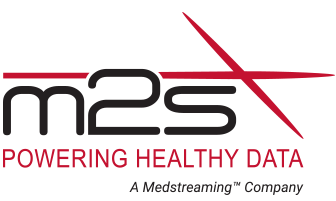Carotid artery stenting (CAS) and CEA are performed in patients with atherosclerotic narrowing of the carotid artery in order to reduce stroke risk. In the TCAR procedure, a stent is inserted into the common carotid artery through a small neck incision (transcarotid), whereas typical carotid stents are inserted with a long catheter inserted in a groin artery (transfemoral) that must pass through the aorta to reach the carotid artery which is a potential source of stroke with the trans-femoral approach.During TCAR, stroke risk is also reduced by temporarily reversing blood flow direction in the carotid artery, so that any debris dislodged by the procedure will not travel to the brain where it could cause stroke. Initial publications suggest that TCAR may have a lower stroke rate than standard transfemoral CAS, potentially due to avoidance of a catheter manipulation in the aorta combined with carotid artery flow reversal.
The TCAR Surveillance Project is designed to obtain more data about real-world outcomes of TCAR in comparison with CEA as performed by centers participating in the Vascular Quality Initiative (VQI). The TCAR Surveillance Project will be directed by an SVS PSO Steering Committee that will make periodic analyses of data collected in the VQI CAS and CEA Registries.
The TCAR Surveillance Project was evaluated by the US Food and Drug Administration (FDA) and found scientifically valid and clinically relevant. Based on this, reimbursement for TCAR procedures performed by centers participating in the VQI TCAR Surveillance Project was approved on Sept. 1, 2016, by the Centers for Medicare and Medicaid Services (CMS) under the current National Coverage Determination.
The project requires that the procedure be performed in high surgical risk patients (asymptomatic or symptomatic) using FDA-approved or FDA-cleared devices labeled for the transcarotid approach and that data about the procedure and one-year follow-up be submitted to the VQI CAS Registry in order to qualify for Medicare coverage.
“We are very pleased about this collaboration between the SVS PSO, CMS and the FDA that has enabled this important study,” said Dr. Larry Kraiss, Chair of the PSO Governing Council. “It is through initiatives like the TCAR Surveillance Project that we can accomplish the SVS PSO mission, by using real-world registry data to evaluate and improve the care of our patients with carotid artery disease.”
Sites interested in participating in the project can enroll in the VQI CAS Registry if they do not already participate and obtain the National Clinical Trial identifier required for billing.
“The SVS applauds the efforts of its PSO to continually explore new and innovative ways to improve patient care,” said Dr. R. Clement Darling, President-Elect of the Society for Vascular Surgery. “We are excited to learn what this study will find, and encourage participation in the TCAR Surveillance Project.”
For further information about participating in the VQI CAS registry, please contact vqi@m2s.com or call (603) 298-5509.
##
The SVS Patient Safety Organization, a wholly owned subsidiary of the Society for Vascular Surgery, improves patient safety and the quality of health care delivery by providing web-based collection, aggregation, and analysis of clinical data submitted in registry format for all patients undergoing specific vascular treatments. The Society for Vascular Surgery PSO oversees the data sharing partnerships and patient safety initiatives of the Vascular Quality Initiative (VQI).
The Vascular Quality Initiative, a joint venture of M2S Inc. and the Society for Vascular Surgery, collects and analyzes data to improve the quality of vascular care. Currently, VQI has more than 370 facilities and 2,800 physicians participating, and 270,000+ vascular procedures reported. Its 12 clinical registries are Carotid Endarterectomy, Carotid Artery Stenting (including TCAR), Open AAA Repair, Endovascular AAA Repair, TEVAR and Complex EVAR, Infra-Inguinal Bypass, Supra-Inguinal Bypass, Lower Extremity Amputation, Peripheral Vascular Intervention, Hemodialysis Access, Inferior Vena Cava Filter and Varicose Vein. VQI is collaboration between regional groups that use a Patient Safety Organization and the M2S PATHWAYS cloud-based system.
The Society for Vascular Surgery® (SVS) is a 5,400-member, not-for-profit professional medical society, composed primarily of specialty-trained vascular surgeons, which seeks to advance excellence and innovation in vascular health through education, advocacy, research and public awareness. The Society is based in Chicago, Illinois.









